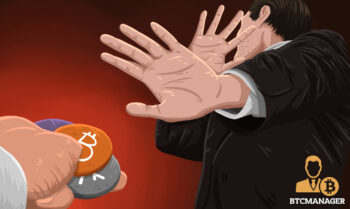2018-9-11 07:34 |
Do People Trust Bitcoin More Than Central Banks
CNN recently aired a video highlighting how people around the world are starting to trust bitcoin more than they trust central banks.
The video features Andrew Ross Sorkin, best known for writing “Too Big to Fail”. In an interview, Sorkin discusses how the 2008 market crash changed the tide of public opinion in the United States.
After the financial crisis, people stopped trusting central banks and other financial institutions. They stopped trusting established politicians and experts. That’s why Sorkin claims the 2008 market crash helped elect Trump, for example, and why people are turning to bitcoin instead of central banks.
Sorkin spends the first half of the interview talking about how the 2008 market crash led to a distrust of politicians and governmental institutions. This distrust created some of the attitude that led to the election of Donald Trump in 2016: people became anti-establishment and disillusioned by promises of experienced politicians. They saw Donald Trump as an outsider.
This anti-establishment attitude is also pushing people towards cryptocurrencies like bitcoin. Central banks like the US Federal Reserve and the Bank of Canada control national currencies like the US Dollar and Canadian Dollar. Bitcoin and other cryptocurrencies, meanwhile, aren’t governed by any centralized organization. They’re run by a decentralized network of nodes who collectively agree on the rules of governance – or consensus.
There’s no single person in charge of bitcoin. There’s nobody controlling the emission of bitcoin, nor is there a single group making decisions about the future of bitcoin. It’s decentralized governance for a decentralized currency. You don’t have to trust anyone to trust bitcoin: it’s a trustless system secured by the bitcoin blockchain.
The 2008 Financial Crisis Led to the Rise of BitcoinThe 2008 financial crisis created a system where people trust cryptocurrencies like bitcoin more than they trust centralized institutions like central banks.
As Sorkin explains, Trump’s election – and the turn towards cryptocurrencies – has been fueled by a distrust of experts, and that distrust comes from the 2008 financial crisis:
“You have the end of a trust of institutions of government of experts…this idea of fake news. This idea that we would actually look at experts and think, ‘They’re not experts, we don’t want experts.’ All of that happens, in my mind, in large part as a function of the [2008 financial] crisis.”
Sorkin claims this idea is nothing new. In the past, after major financial crises, populations have turned away from experts and sought populism:
“When you look at history after deep financial crises, this is invariably a rise of populism that happens over the next decade, if not the next twenty years.”
That’s when Sorkin turns his attention towards bitcoin.
“You say that the rise of bitcoin is an embodiment of the lack of trust that you’re describing,” asks the CNN interviewer.
“Absolutely,” answers Sorkin. “There clearly has been a distrust…just the idea that the government…that those with privilege…that they were going to able to protect everybody else. And once that unraveled, it changed everything.”
“Bitcoin is a great example of that. All of a sudden there’s a whole group of people in the world, across the world, that don’t trust central banks. They don’t trust the Federal Reserve anymore. So they’re saying to themselves, I’m going to take this thing, this digital currency, that has nobody in control of it whatsoever, and I trust that more than I trust these people at the top.”
The 2008 financial crisis was devastating. Today, we’re well into the recovery phase, and economies around the world continue to experience healthy growth. CNN posted their interview with Sorkin earlier today because it’s the ten year anniversary of the crisis. Will all of today’s growth lead to another financial crisis? Is the bubble due to burst in the coming days, weeks, months, or years? Will bitcoin skyrocket in value during the next financial crisis? Or will it plummet? These are all questions that will be answered in the coming years.
origin »Bitcoin price in Telegram @btc_price_every_hour
TrustPlus (TRUST) íà Currencies.ru
|
|











